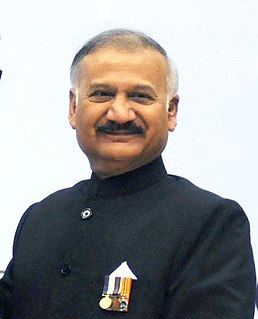A Quote by Thomas Hobbes
To this war of every man against every man, this also in consequent; that nothing can be unjust. The notions of right and wrong, justice and injustice have there no place. Where there is no common power, there is no law, where no law, no injustice. Force, and fraud, are in war the cardinal virtues.
Related Quotes
...the statement, "The purpose of the law is to cause justice to reign," is not a rigorously accurate statement. It ought to be stated that the purpose of the law is to prevent injustice from reigning. In fact, it is injustice, instead of justice, that has an existence of its own. Justice is achieved only when injustice is absent.
The industrial and social injustice of our era is the tragic aftermath of democracy's overemphasis on freedom as the "right to do whatever you please." No, freedom means the right to do what you ought, and ought implies law, and law implies justice, and justice implies God. So too in war, a nation that fights for freedom divorced from justice has no right to war, because it does not know why it wants to be free, or why it wants anyone else to be free.
By nature's law, every man has a right to seize and retake by force his own property taken from him by another, by force of fraud. Nor is this natural right among the first which is taken into the hands of regular government after it is instituted. It was long retained by our ancestors. It was a part of their common law, laid down in their books, recognized by all the authorities, and regulated as to circumstances of practice.
I regard it as a duty which I owed, not just to my people, but also to my profession, to the practice of law, and to the justice for all mankind, to cry out against this discrimination which is essentially unjust and opposed to the whole basis of the attitude towards justice which is part of the tradition of legal training in this country. I believed that in taking up a stand against this injustice I was upholding the dignity of what should be an honorable profession.
Whatsoever therefore is consequent to a time of war, where every man is enemy to every man, the same consequent to the time wherein men live without other security than what their own strength and their own invention shall furnish them withal. In such condition there is no place for industry... no knowledge of the face of the earth; no account of time; no arts; no letters; no society; and which is worst of all, continual fear, and danger of violent death; and the life of man, solitary, poor, nasty, brutish, and short.
War is an ugly thing, but not the ugliest of things: the decayed and degraded state of moral and patriotic feeling which thinks nothing worth a war, is worse. A war to protect other human beings against tyrannical injustice; a war to give victory to their own ideas of right and good, and which is their own war, carried on for an honest purpose by their own free choice - is often the means of their regeneration.
In war, in some sense, lies the very genius of law. It is law creative and active; it is the first principle of the law. What is human warfare but just this, - an effort to make the laws of God and nature take sides with one party. Men make an arbitrary code, and, because it is not right, they try to make it prevail by might. The moral law does not want any champion. Its asserters do not go to war. It was never infringed with impunity. It is inconsistent to decry war and maintain law, for if there were no need of war there would be no need of law.
A day of grace is yet held out to us. Both North and South have been guilty before God; and the Christian Church has a heavy account to answer. Not by combining together, to protest injustice and cruelty, and making a common capital of sin, is this Union to be saved-but by repentance, justice and mercy; for, not surer is the eternal law by which the millstone sinks in the ocean, than that stronger law, by which injustice and cruelty shall bring on nations the wrath of Almighty God.





































